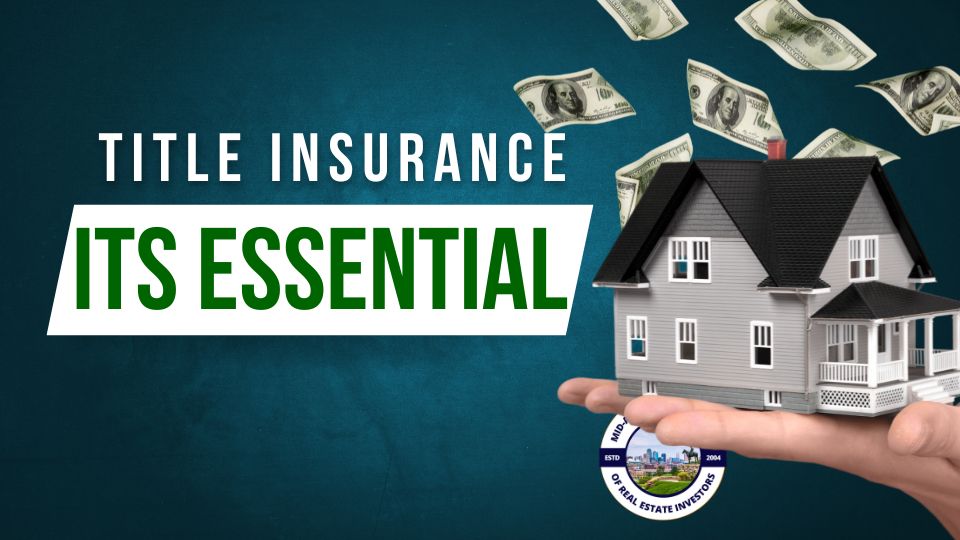
Recently, the Biden Administration and the Federal Housing Finance Agency (FHFA) have stirred debate by categorizing title insurance as a “junk fee” and testing programs that allow refinances to proceed without requiring title insurance. While these initiatives might seem to lower upfront costs for buyers and refinancers, they overlook the critical protection title insurance provides. These changes could leave property owners vulnerable to significant financial losses caused by title defects or unresolved claims.
At MAREI, we believe it’s essential to highlight why title insurance matters. To revisit this crucial topic, we’re sharing insights originally provided by Accurate Title in 2014. This review underscores the indispensable role title insurance plays in safeguarding property investments and ensuring peace of mind for homeowners.
Let’s dive into what title insurance is, what it covers, and why it remains a cornerstone of responsible real estate ownership.
Understanding Title Insurance: What It Covers and Why It’s Essential
Title insurance is often misunderstood and frequently dismissed as an unnecessary expense during the home-buying process. However, it plays a critical role in protecting property owners from financial losses due to title defects. According to the American Land Title Association, about 25% of residential real estate transactions encounter title issues. While many of these issues are resolved before closing, some problems may emerge later, potentially costing the new owner significant money and stress.
What is Title Insurance?
Unlike other insurance types that focus on future risks, title insurance protects against past events affecting the ownership of a property. This one-time purchase ensures that the property owner is shielded from claims, liens, or other title defects. Here are the two primary types of title insurance:
- Lender’s Policy: This is typically required if you are financing your home. It protects the lender’s interests against title issues but does not cover the buyer.
- Owner’s Policy: This optional policy protects the homeowner from title claims and is highly recommended for all property buyers.
An Owner’s Policy remains valid as long as you have an ownership interest in the property. This includes instances where you transfer ownership through a Warranty Deed, protecting you from future title-related claims.
Common Issues It Covers
A basic Owner’s Title Policy can protect against a variety of issues, including:
- Missing or improperly filed documents between title examination and closing.
- Unrecorded claims that could impact property ownership.
- Structural encroachments, such as fences or driveways crossing boundaries.
- Forged documents or fraudulent transactions.
- Problems with wills, estates, or improper probates.
- Incorrect marital status or contested divorces affecting ownership rights.
- Unpaid liens or judgments, such as contractor claims or unpaid taxes.
- Undisclosed heirs or ownership disputes.
- Errors in public records.
If you have questions about specific exceptions in your title insurance policy, consult your title agent or an attorney. Additional coverage can sometimes be purchased to address unique concerns.
What Title Insurance Does Not Cover
Title insurance does not protect against events occurring after the purchase, such as new liens resulting from unpaid contractors or taxes. Additionally, it does not cover any issues caused by the buyer or lender post-purchase.
Shopping for Coverage
Many people don’t realize they have the right to shop around for title insurance. Rates may vary depending on your state, and discounts might be available if you have a recent title insurance policy. Note that it’s illegal for lenders to require you to use a specific title insurance company.
Filing a Claim
If you discover a title issue, here’s how to handle it:
- Locate your Owner’s Policy or HUD-1 Settlement Statement as proof of coverage.
- Identify the title underwriter’s contact details; this information may be available online.
- File a claim with the underwriter, including all relevant documentation, such as letters, receipts, and evidence supporting your case.
Title insurance companies are legally required to respond promptly to claims. If your claim is denied or inadequately resolved, consult an attorney for guidance on how to proceed.
Why Title Insurance is Worth It
While it might seem like an added expense during the home-buying process, title insurance offers substantial financial protection and peace of mind. The cost of the policy is often far less than the legal fees or potential losses from a title dispute.
By understanding the benefits and limitations of title insurance, buyers can make informed decisions to safeguard their real estate investments.
Don’t buy, lend, or refinance without it.


